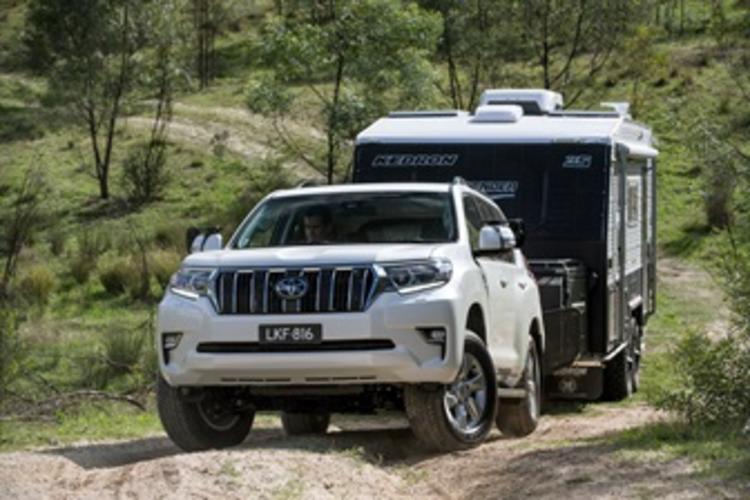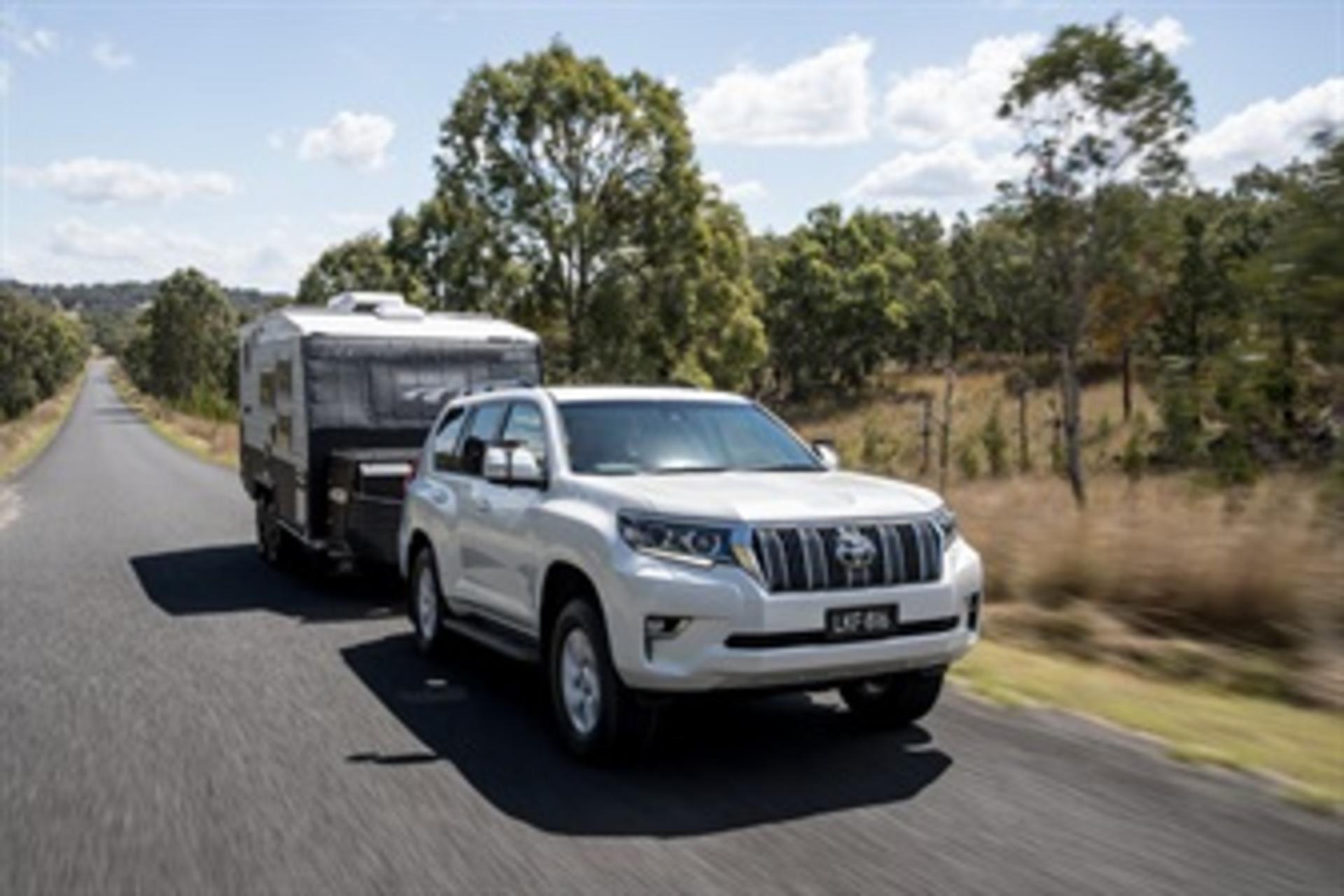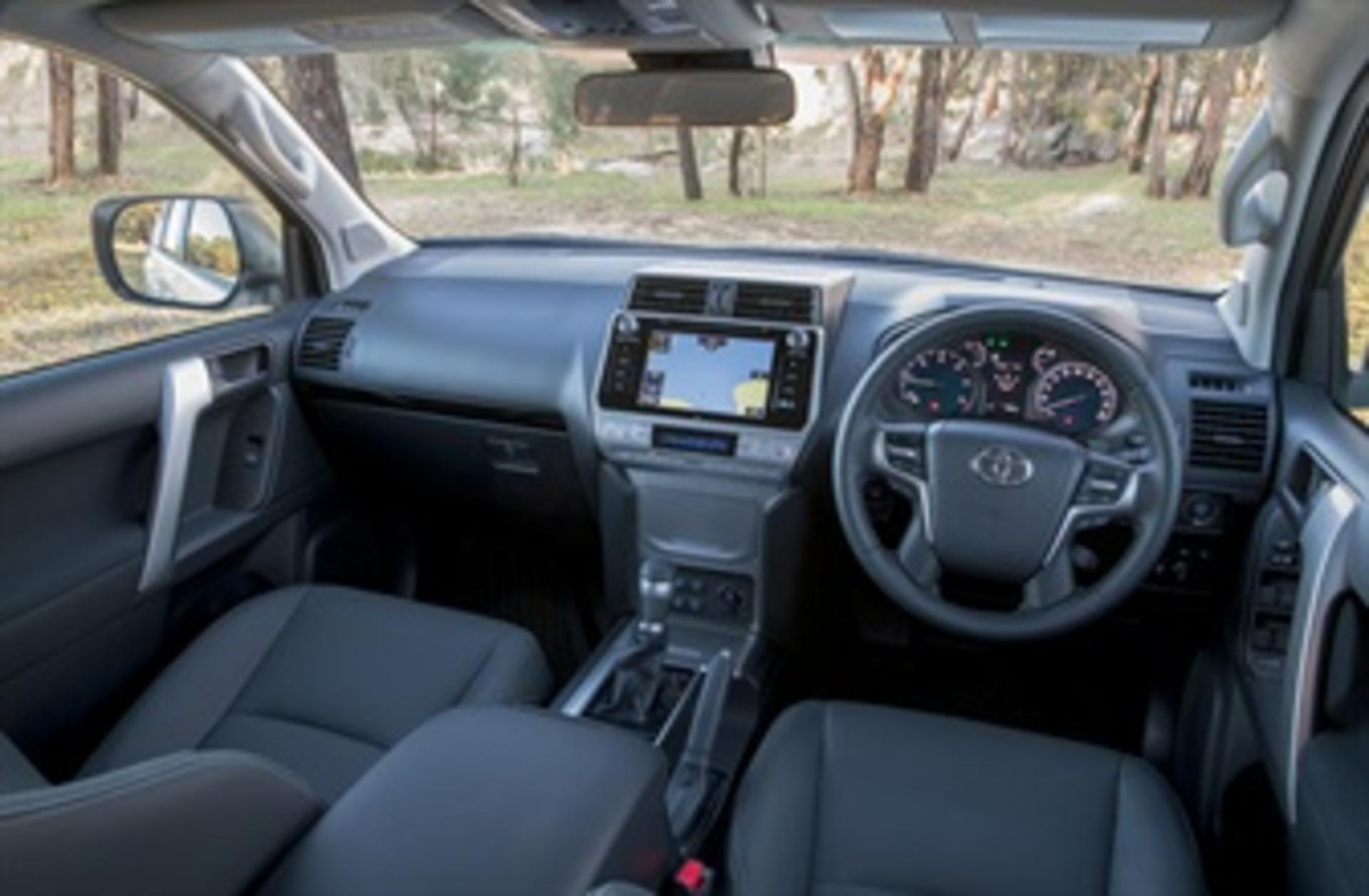
Review | 2018+ Toyota LandCruiser Prado
Posted in Vehicle Reviews
Review | 2018+ Toyota LandCruiser Prado
The Toyota LandCruiser Prado has been on and off-road in Australia for over twenty years.
We took out the first big changed Prado in nearly a decade.
Initial Impression
The Prado has grown more like it’s bigger LandCruiser brother than ever before. From the outside, the sculpted bonnet above the revised shaped grille evokes the 200-series – while also improving downward visibility through the deceptively long nose of the Prado.
Inside, equipment has trickled down the range – especially in terms of safety. Blind spot monitoring and rear cross traffic alert are now available in the VX, instead of being restricted to the top-of-the-line Kakadu, while pre-collision safety system including autonomous emergency braking, pedestrian detection, lane departure warning and active cruise control are now standard no matter which Prado you land in.
The familiarity of the Prado is still there, though. The rear-mounted spare tyre still bumps into your line of sight out the back, while the overhauled switchgear retains its simple layout up the front: clearly Toyota doesn’t want to throw out and start again with the recipe that has produced one of Australia’s top-selling four-wheel drives.
Driveability

Toyota has dropped the unloved 4.0L petrol V6 – sales are 98% in favour of the diesel anyway – keeping the familiar 2.8L turbo-diesel unit that was introduced for the 2016MY Prado. There aren’t many big changes in the aerodynamic styling of the Prado – you’re still going to be driving a chunky wagon – though small tweaks have made it a little more manageable around town when it’s not stretching its legs on the open road.
The six-speed auto is well suited now to a range of driving situations, knowing when to change up as you put the hammer down and without hunting for gears when at suburban speeds.
One of the benefits the Prado has over its rivals is its status as a full-time 4WD – no ‘on-demand’ business here. Unless you’re off-road every weekend, it won’t make much of a difference to you, but if you’re picking a Prado as a long-range tourer for the holidays or to tow, it’s nice to know that you can just turn off the highway at any point and go bush.
Liveability
The Prado has slowly gone upmarket from when it arrived in it’s original form,
In the cabin, there’s a generous sense of space, and the seats are supportive and well bolstered – and the interior ergonomics are pleasing enough to spend a fair whack of your day in. Even the plus two seating up the back in the third row isn’t too tight of a squeeze.
The mid-range Prados aren’t dripping in bells and whistles, which for the money being asked might come as a shock to some buyers about to part with over $60,000.
It’s hardly as barren as you might’ve expected out of a 4WD in early days of recreational off-road vehicles: there’s a reverse camera, satellite navigation, Toyota Link and 3-zone climate control as standard on the GXL.
Of course, the flagship Kakadu models get Blu-ray players in the back and radar cruise control to skew to families looking for an uber safe, super connected 4WD, but the Prado range now has a bulk range of standardised safety features; so it serves as a fantastic entry point for families and grand tourers, finding the middle ground between simple, reliable off-road motoring and comfortable, convenient daily driver.

Cost
The entry model GX Prado comes in at $53,490 for a manual turbo-diesel rising through the trims to the top-spec Kakadu models at $84,490. The GX and GXL offer the only manuals in the range, with an automatic option that becomes standard when you move to the VX and Kakadu models.
As tested, the GXL Prado will set you back around $62,990.
Prices are recommended retail prices and exclude on-road costs such as registration, stamp duty, luxury car tax and dealer delivery. Premium paint is available as an additional option; Glacier White is the standard, no-cost choice for the GX and GXL, while Ebony (black) is also a no cost option for GXL Prado’s and higher grades.
Toyota Capped Price Servicing covers the Prado for the first three years or 100,000km at a cost of $220 per scheduled service. Services are scheduled every 6 months or every 10,000km, depending on how you use your car.
Conclusion
After twenty years on sale, the Prado has evolved from a ‘family friendly’ stepping-stone to a full-sized Land Cruiser to a vehicle that has become aspirational in its own right.
Toyota knows not to change the winning recipe – so rather than throw the baby out with the bathwater, the 2018 Prado comes with an overhaul that’s less about changing the car and more to do with refining it.
To test drive the new engines for yourself, get into Motorama Toyota and speak to the team about a Prado.

